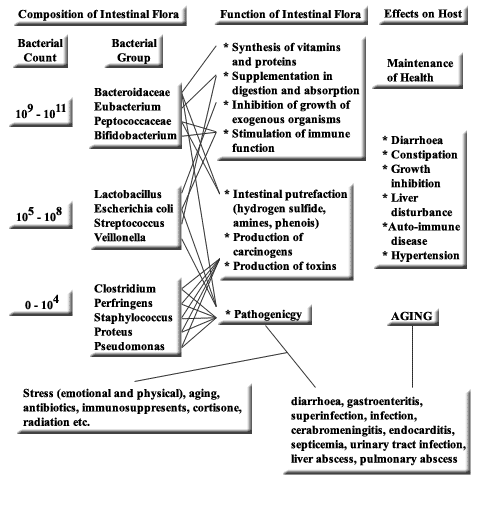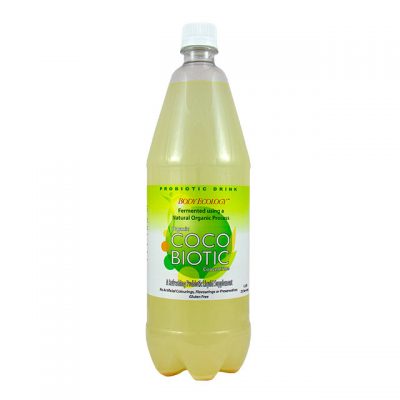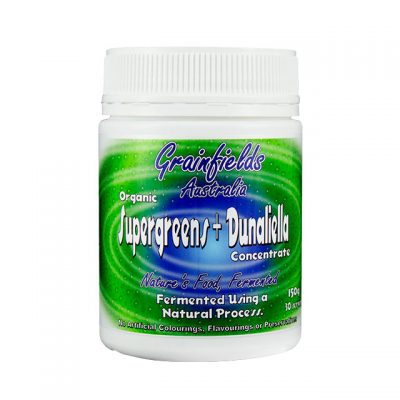BACTERIAL COMPOSITION WITHIN THE HUMAN INTESTINE
The Effect on the Ageing Process

T. Mitsuoka – Intestinal Flora and Aging Nutrition Reviews 1992.50.
Over 100 different species of bacteria make up the composition of the human intestine. In total the 100 species accumulate to form over 100 trillion live bacteria which live from day to day on the food provided through the digestive tract. The number of viable bacteria which predominate the intestine are controlled by various factors; e.g. diet, the strength of the immune system, existing levels of bacteria, infections and the amount of competing bacteria consumed each day.
Each of the intestinal microflora possess diverse enzymes, capable of converting substances into beneficial and detrimental compounds. The amounts of these substances may affect the host’s physiological function, detoxification, drug efficiency, exposure to carcinogens, rate of ageing, resistance to infections and the levels of vitamins, minerals, proteins and fatty acids liberated from foods. It is, therefore, important to establish a healthy balance of good vs. bad bacteria, particularly as we get older. The diagram below is a summary of the most popular bacteria found in the digestive tract. The diagram also shows the numbers usually present and whether they have a beneficial or detrimental effect on health. As can be seen, each of the bacterial groups effect the host in different ways. It has also been suggested that in the process of normal ageing, these bacteria levels may change.
Reductions in some of the health-promoting bacteria, particularly the Bifidobacterium counts, have been identified in some aged groups. Rebalancing and repromoting the levels of good bacteria may be a significant factor in slowing the ageing process and decreasing the rate of some degenerative processes. Toxin overload and poor waste removal certainly promote stresses on the host. Constant overload along with the normal progression of degeneration will only speed the process further. Ageing is a phenomena we will all experience. The rate at which this process develops is dependent on the way we treat our bodies. Restoration of healthy bacterial colonies within our intestine is an important step people can take as they are ageing.




